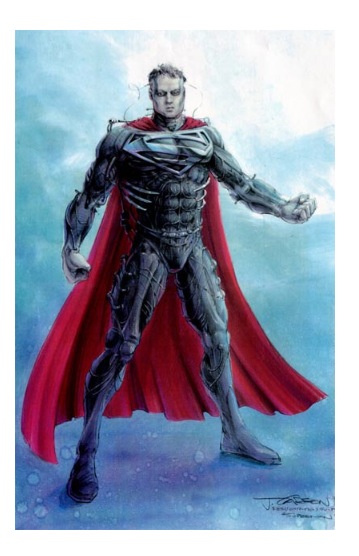 Imagine. In the earliest days it took unprecedented insight and gumption to take stick or sharpened bone to the soil to scrawl out an idea, to communicate by way of pictures. We’d been pointing and grunting and hooting with some success, but if we were really to map out a strategy to take down the burly mastodon in the clearing, we would need to plot the ambush visually. Somebody had to decide how to draw the thing, how to present the concept of mastodon with shapes in the dirt.
Imagine. In the earliest days it took unprecedented insight and gumption to take stick or sharpened bone to the soil to scrawl out an idea, to communicate by way of pictures. We’d been pointing and grunting and hooting with some success, but if we were really to map out a strategy to take down the burly mastodon in the clearing, we would need to plot the ambush visually. Somebody had to decide how to draw the thing, how to present the concept of mastodon with shapes in the dirt.
Energized by passion and hunger, the first artist rose up, and by the flickering light of newly discovered fire, began to scratch his genitals. But with his other hand he brandished a fine stick and began to compose the first symbols upon the ground. Satisfied that he’d truly captured the savage and delicious nature of the beast, he presented it to the rest of the gang. They gathered ‘round and looked upon the scene, the image of a mastodon surrounded on all sides by stick figures they might have recognized as themselves. The artist gestured with a vigorous stabbing motion, held a flailing arm to his nose to suggest the beast’s trunk. And lo, they pursed their lips and pinched heir earlobes, at once bewildered and astonished at his work. The first battle plan. The first menu. The first art! But then could be heard the trickling of vandalism as the first critic began to piss on the artist’s work. The rendering of the mastodon was too small, too round, for his liking. He offered no suggestion but the emptying of his bladder. He chittered as the artist moved to strike at him with his stick. A small scuffle, but nothing of consequence. The gang dispersed. The mastodon was left a muddy smear.
That night the critic gnawed on scavenged meat and slept in a comfortable nest of furs that had been prepared by somebody else. The artist sat on a hill, looking up at the sky, connecting the specks of light in the darkness, forming mastodons and bears and men and children. He began to draw anew. There was much to communicate, much to be taught, much to be said.
For as long as there has been art and artists there has been criticism, the gnashing of teeth from the peanut gallery. Criticism refines art and purest art inspires and informs the critic. It’s a surly rivalry, but without it there would be no progress. Design must answer to two masters; form and function. And because of this, there is often disagreement and a great deal of piss being pissed. A great deal of chittering and scuffling. We pass judgment on art every day by way of our purchasing decisions, but also in our daily communications of what’s good and what’s great and what isn’t. Anyone who can read and write can pass judgment, offering their own commentary. There is an art to criticism and a means of criticizing through art, because each is simply a way of offering up opinion, frequently in contrast to another. Let’s remember that criticism is vital and that it shapes art, serves as a filter. It’s not merely a way of squashing creativity. It also demands it. It is, by nature, a necessary evil.
Today, I’m writing because I think the real art and craft of criticism is often forgotten. So let this be a length of twine around your finger. Around mine as well.
 We write about comics. We read and enjoy and praise and criticize. This place is a forum. It’s a gallery or a salon. And we pass our days away debating the fruits of peoples’ trade. And a lot of times, that gets kind of ugly. We lob rotten produce. We Statler and Waldorf the bejesus out of comics from the safety of the balcony. We’re downright cantankerous.
We write about comics. We read and enjoy and praise and criticize. This place is a forum. It’s a gallery or a salon. And we pass our days away debating the fruits of peoples’ trade. And a lot of times, that gets kind of ugly. We lob rotten produce. We Statler and Waldorf the bejesus out of comics from the safety of the balcony. We’re downright cantankerous.
I think it’s important to be discerning. Demand excellence from your art. But that can be suggested with your wallet. When it comes to evaluating the work, it makes sense to get a little angry when you’re disappointed. It’s your money. But what good is it to deride something without suggesting the means to improve it? It’s all become the main attraction to scourge creators at the pillar. I think we often look forward to the opportunity to go full tilt and call out every flaw. Why do we derive pleasure out of assaulting someone’s work? Fine to be frustrated, but why are we delighted to count the faults?
I’m not suggesting that we stop evaluating comics with a measure of honesty and critical attention. And I’m not saying that we ought to lather on the praise just to balance out the piss and vinegar either. But appraise everything and strive to make a decent argument. For every bit of derision, suggest a fix. Or call for it. Identify the problems in the plotting or inking and try to figure out what it was that went wrong and how this artist or other artists might avoid it in the future. That’s what criticism ought to do. It’s not simply a report card for the artist in question, but advice to the developing artists who dearly need direction. It’s sometimes difficult to remember that criticism really isn’t about the things we’ve already done, but the things we aspire to do. Rather than wallow in mistakes, we might consider learning from them. We can go for the cheap laugh and empty our bladders, or we could suggest alternatives. We can help to tell the story better and we can even tell it ourselves. Help construct or be constructive. If you pull something apart, don’t forget to try and see how it works. Ask why. And look for ways to make it better. Share that insight or, better yet, show us that insight.
Remember that the goal of a great artist and a great critic is really one and the same. Great art.
Paul Montgomery will never piss on your mastodon. Reach him at paul@ifanboy.com. You can also find him on Twitter.
Now online: Listen to his first scripted episode of the award winning audio drama Wormwood: A Serialized Mystery, co-written with Wormwood creator David Accampo.
Paul joins the writing staff with season 2, episode 14 “Jack Nicholson’s Nose.” All previous episodes from seasons 1 and 2 can be found for free at wormwoodshow.com or on iTunes.

 Let me give you a little example — if I am lying in bed, it is difficult to hold a book, get light on the pages (without waking the wife and dog), etc. etc. If I finish one, inevitably the next one that I want to read is in the other room – so then I have to get out of bed (without waking the wife and dog) – get the book and carefully work my way back into bed and find my “spot” – which is now either cold or inhabited by the dog. With a Kindle (or other reader thingy) I can have a plethora of books on “pages” that are back-lit and I don’t have to worry about laying at awkward angles to make sure the “other” pages aren’t falling in my way.
Let me give you a little example — if I am lying in bed, it is difficult to hold a book, get light on the pages (without waking the wife and dog), etc. etc. If I finish one, inevitably the next one that I want to read is in the other room – so then I have to get out of bed (without waking the wife and dog) – get the book and carefully work my way back into bed and find my “spot” – which is now either cold or inhabited by the dog. With a Kindle (or other reader thingy) I can have a plethora of books on “pages” that are back-lit and I don’t have to worry about laying at awkward angles to make sure the “other” pages aren’t falling in my way.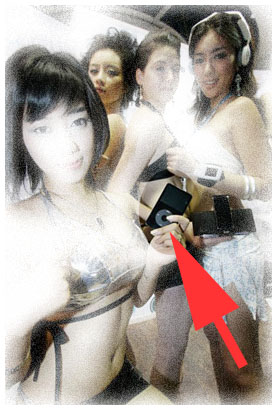
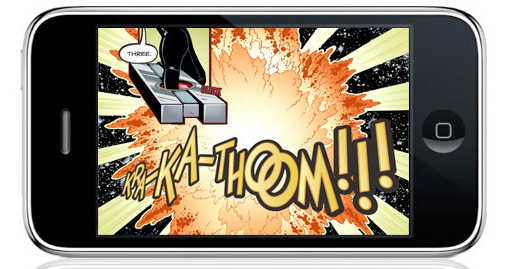
 I like comic books more than
I like comic books more than  Without an income and the expense of fabulous therapies that doctors recommended, (but health insurance didn’t cover — thanks), I had no leftover cash to spend on extras. When I say “extras”, I don’t mean caviar, I mean no clothes, no cafes, no burgers, no beers, no nothing. It sounds weird that comics would be the one thing I’d keep going with, but if you think about it logically, it makes sense. Out of all of those things, comics are the only ones that entertained me. Clothes don’t really matter if you aren’t working or going out to anywhere much, and when I was finally out of bed and desperate for a change I found a few clothing-swaps to unload stuff I hated in exchange for stuff my friend’s hated. Cutting out drinking tea in local cafe’s was annoying, but surprisingly easy since I live in San Francisco where the weather is usually nice. I’d make a cup of tea in a travel mug, make a sandwich, and take them to the top of Buena Vista Park. Okay, so we’ve got the basics covered, but while sitting in the park in my second-hand jeans, sipping my tea, what the hell do I do? Read a comic. See, it’s the only part of the equation that I couldn’t replace — comics.
Without an income and the expense of fabulous therapies that doctors recommended, (but health insurance didn’t cover — thanks), I had no leftover cash to spend on extras. When I say “extras”, I don’t mean caviar, I mean no clothes, no cafes, no burgers, no beers, no nothing. It sounds weird that comics would be the one thing I’d keep going with, but if you think about it logically, it makes sense. Out of all of those things, comics are the only ones that entertained me. Clothes don’t really matter if you aren’t working or going out to anywhere much, and when I was finally out of bed and desperate for a change I found a few clothing-swaps to unload stuff I hated in exchange for stuff my friend’s hated. Cutting out drinking tea in local cafe’s was annoying, but surprisingly easy since I live in San Francisco where the weather is usually nice. I’d make a cup of tea in a travel mug, make a sandwich, and take them to the top of Buena Vista Park. Okay, so we’ve got the basics covered, but while sitting in the park in my second-hand jeans, sipping my tea, what the hell do I do? Read a comic. See, it’s the only part of the equation that I couldn’t replace — comics. It wasn’t just a passive entertainment either. As I made my slow recovery, attempting to build up my strength, the first regular errand I managed was a walk to the comic shop once every couple of weeks. I knew that I could afford to buy one comic a week and then I could sit in a park on the way home to read my bounty. It sound like a meagre existence, but after a year stuck indoors, with my strength slowly returning to me, it was all I could handle and I loved it. For $3 or $4 I got a nice little walk, some good conversation at the store, something great to read, and another small addition to my library of good reading material. That’s hours of entertainment. It was the beginning of a return to the world outside my sick bed and I was grateful. Don’t get me wrong, it was still a stretch to afford my comics. By the end of it, I had to cut it right down to
It wasn’t just a passive entertainment either. As I made my slow recovery, attempting to build up my strength, the first regular errand I managed was a walk to the comic shop once every couple of weeks. I knew that I could afford to buy one comic a week and then I could sit in a park on the way home to read my bounty. It sound like a meagre existence, but after a year stuck indoors, with my strength slowly returning to me, it was all I could handle and I loved it. For $3 or $4 I got a nice little walk, some good conversation at the store, something great to read, and another small addition to my library of good reading material. That’s hours of entertainment. It was the beginning of a return to the world outside my sick bed and I was grateful. Don’t get me wrong, it was still a stretch to afford my comics. By the end of it, I had to cut it right down to 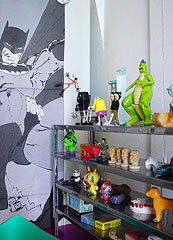 Obviously now I’m an employed adult and I can afford luxuries like comics, so this might seem like an easy choice to make. But as I said above, even when I couldn’t afford it, I simply bought much less. The alternative of reading them online is not an alternative, but a flaccid and unsatisfying disappointment. Even now, people send me pdfs of comics, and I try looking at them, but none of the fun is there. I need to be able to stuff my comic books my handbag and read them on the bus to terrify old ladies. I want to take them to bed so that when I wake up too early on Saturday, I can lie there reading till midday. I want to stash them on my shelves in alphabetical order so that I can yank them out at a moments notice and leave them around the house to read over and over again. I want to lend them out to my friends in huge piles so that I can blow their minds.
Obviously now I’m an employed adult and I can afford luxuries like comics, so this might seem like an easy choice to make. But as I said above, even when I couldn’t afford it, I simply bought much less. The alternative of reading them online is not an alternative, but a flaccid and unsatisfying disappointment. Even now, people send me pdfs of comics, and I try looking at them, but none of the fun is there. I need to be able to stuff my comic books my handbag and read them on the bus to terrify old ladies. I want to take them to bed so that when I wake up too early on Saturday, I can lie there reading till midday. I want to stash them on my shelves in alphabetical order so that I can yank them out at a moments notice and leave them around the house to read over and over again. I want to lend them out to my friends in huge piles so that I can blow their minds.




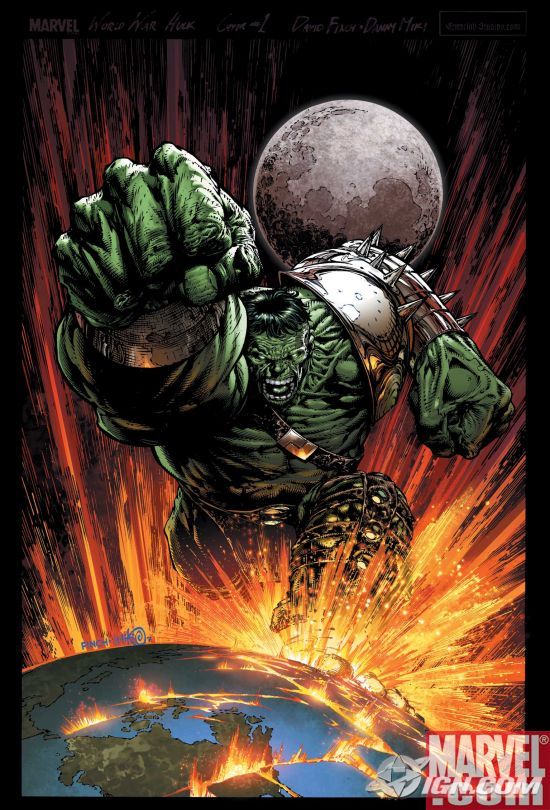
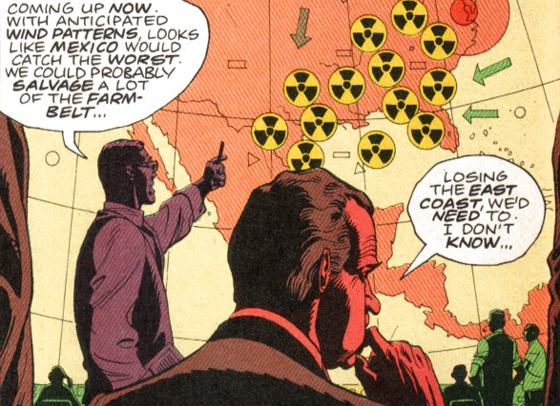
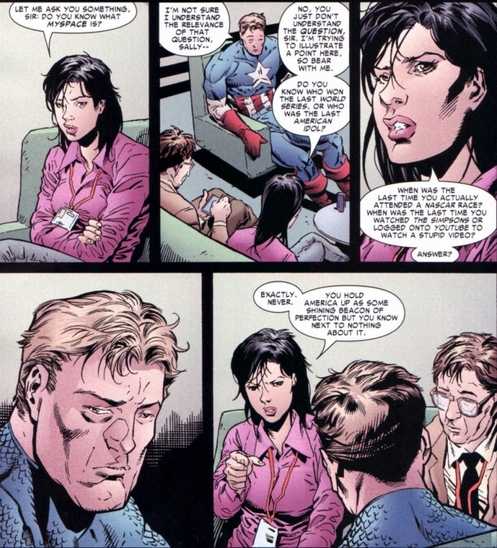
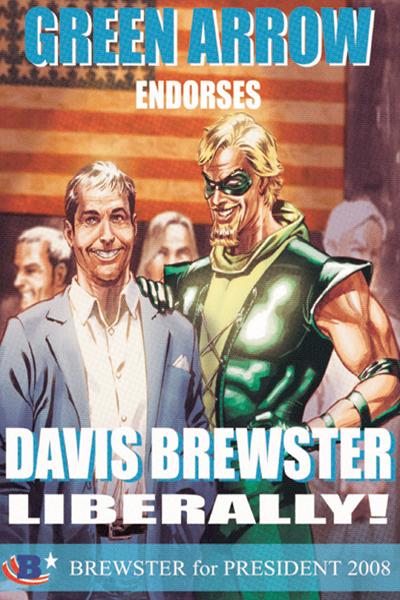
 Friday means many things to many people. For some, Friday means it’s the last work day before a well deserved weekend. For others, Friday is the day you wake up way, way too early and have to put on a suit.
Friday means many things to many people. For some, Friday means it’s the last work day before a well deserved weekend. For others, Friday is the day you wake up way, way too early and have to put on a suit. That would be me still reading The Boys. It’s funny (well, not funny really), but I don’t think I’ve noticed that, but now that you say it, I can see that. If you’ve been watching our show, you probably know that I didn’t really connect with Millar’s
That would be me still reading The Boys. It’s funny (well, not funny really), but I don’t think I’ve noticed that, but now that you say it, I can see that. If you’ve been watching our show, you probably know that I didn’t really connect with Millar’s 







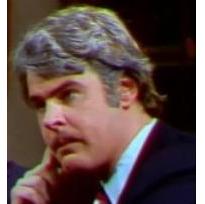 Anyway! A year ago, Marvel Editor-in-Chief Joe Quesada finally made good on his threat to undo Spider-Man’s marriage after years of complaining that it had been a bad idea to marry him off in the first place. The Spidey Cafe was under new management. While I was never ready to
Anyway! A year ago, Marvel Editor-in-Chief Joe Quesada finally made good on his threat to undo Spider-Man’s marriage after years of complaining that it had been a bad idea to marry him off in the first place. The Spidey Cafe was under new management. While I was never ready to 
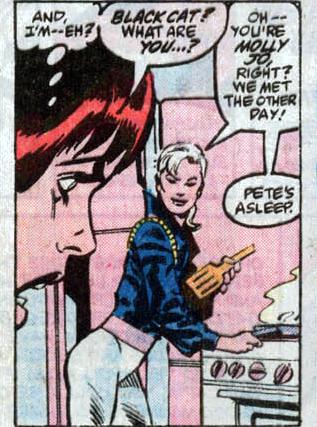

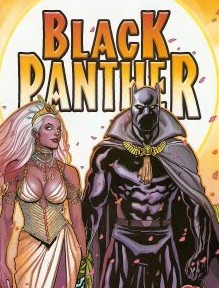
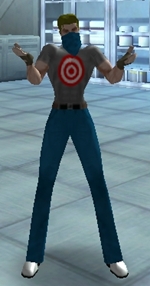 I’d been in the hero game for too long to still be doing so badly. I was supposed to be a “street-level” hero, but that didn’t mean I had to spend so much time with my face at actual street level. I had arrived in Paragon City six long months earlier and had been stalking the streets ever since as my alter ego, Hood. Actually, I had to stalk the streets as “H00D”; there was allegedly someone already stalking the streets of Paragon City as “Hood,” though I couldn’t find him anywhere in town no matter how hard I looked. I wasn’t much of an investigator. I wasn’t much of an anything, except maybe gangland punching bag. I was an
I’d been in the hero game for too long to still be doing so badly. I was supposed to be a “street-level” hero, but that didn’t mean I had to spend so much time with my face at actual street level. I had arrived in Paragon City six long months earlier and had been stalking the streets ever since as my alter ego, Hood. Actually, I had to stalk the streets as “H00D”; there was allegedly someone already stalking the streets of Paragon City as “Hood,” though I couldn’t find him anywhere in town no matter how hard I looked. I wasn’t much of an investigator. I wasn’t much of an anything, except maybe gangland punching bag. I was an 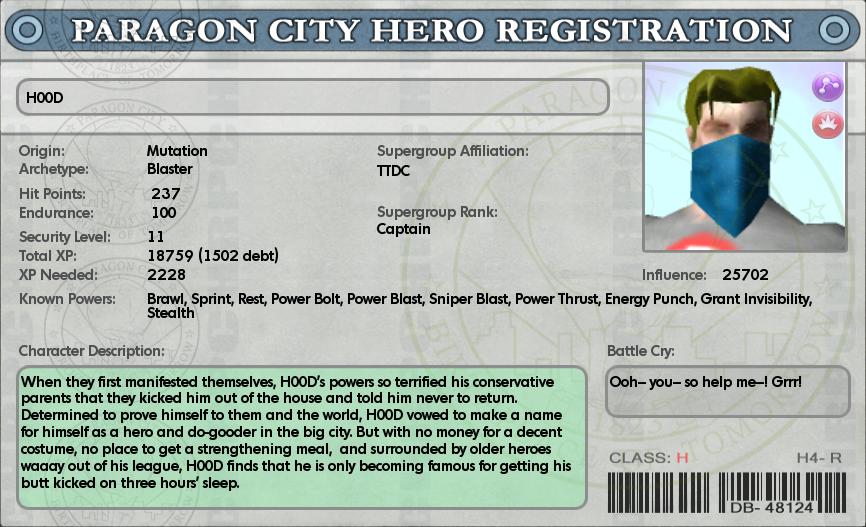
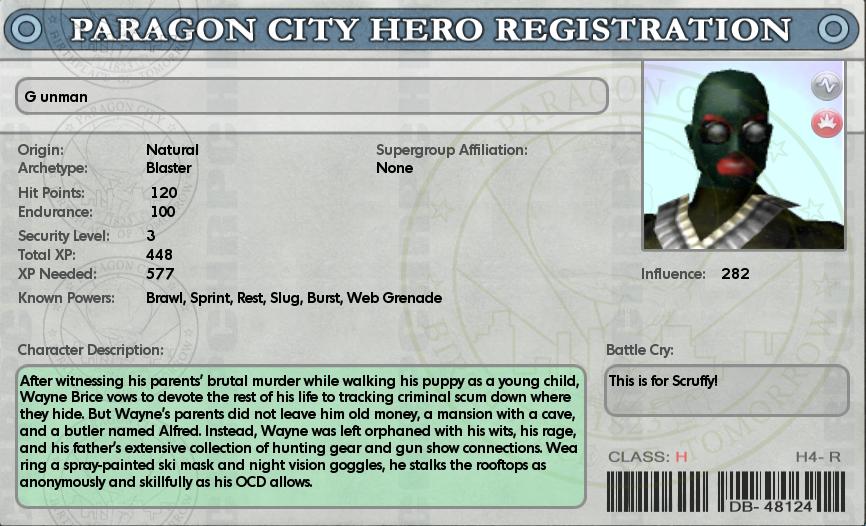
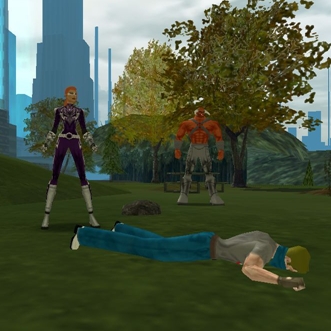 Like the Hood I had written all those years ago, I intended to kick ass and take names but ended up spending a lot of time having my name taken and taste-testing the neighborhood asphalt. I truly had a power set in which I was not proficient or as powerful as I thought I was; I truly did need people to swoop in and save my bacon on a nightly basis. I had a bad habit of suddenly becoming visible in caves full of trolls. Worse still, I was playing on an overclocked laptop that was never meant for hero duty; it kept freezing up or shutting down in the middle of challenges, making me the worst team-up partner this side of
Like the Hood I had written all those years ago, I intended to kick ass and take names but ended up spending a lot of time having my name taken and taste-testing the neighborhood asphalt. I truly had a power set in which I was not proficient or as powerful as I thought I was; I truly did need people to swoop in and save my bacon on a nightly basis. I had a bad habit of suddenly becoming visible in caves full of trolls. Worse still, I was playing on an overclocked laptop that was never meant for hero duty; it kept freezing up or shutting down in the middle of challenges, making me the worst team-up partner this side of 
